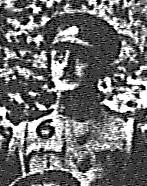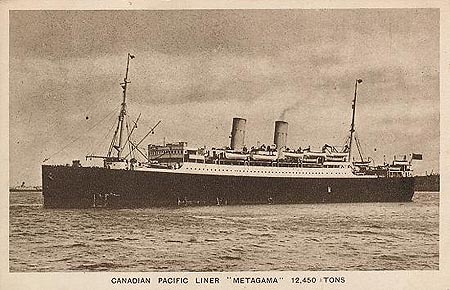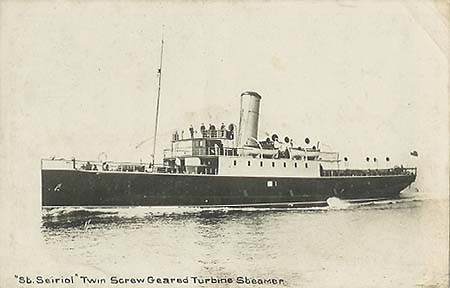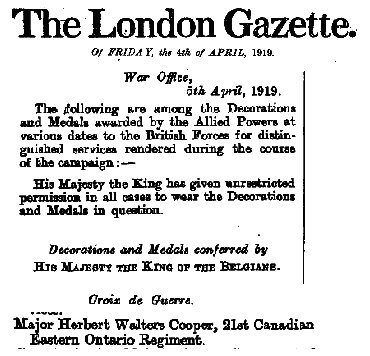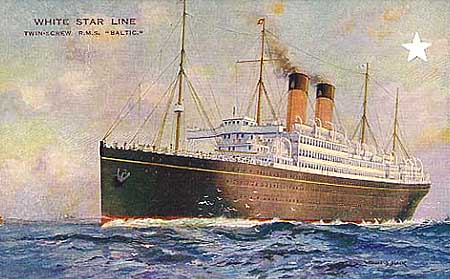|
Herbert Walters Cooper
|
||||||||||||||||||||||||||||||||||||||||||||||||||||||||||||||||||||||||||||||||||||||||||||||||||||||||||||||||||
|
||||||||||||||||||||||||||||||||||||||||||||||||||||||||||||||||||||||||||||||||||||||||||||||||||||||||||||||||||
| Herbert Cooper was employed
in the Penitentiary system after the war. What follows is a report of an inquiry
held at a British Columbia prison that was looking into the death of a prisoner.
This report is held in the BC Archives.
|
||||||||||||||||||||||||||||||||||||||||||||||||||||||||||||||||||||||||||||||||||||||||||||||||||||||||||||||||||
Harry Davis (1877 - 1927)
Harry
Davis was born in Peterborough, Ontario on June 10, 1877. Penitentiary records indicated
Mr. Davis was a widower with two children, and listed his occupation as cook. On June 21, 1926 Mr. Davis was convicted in the Yukon
Territorial Court of manslaughter for having killed a trapper, Charles E. Smith, "at
a point on the Yukon River below Selkirk, on or about February 12, 1926". Mr. Davis'
conviction was unusual in that the victim's body was never found, and there were no eye
witnesses to the killing. Nonetheless, Mr. Davis was sentenced to life imprisonment with
hard labour for "the term of his natural life" (a true life sentence), to be
served in the Royal Canadian Mounted Police penitentiary at Dawson, Yukon Territory. For
reasons unknown, Mr. Davis was transferred to the B.C. Penitentiary on August 4, 1926. Mr. Davis died of acute congestion of the lungs brought on by
exposure on March 5, 1927. A Coroner's inquest was held by New Westminster Coroner Edwin
Howard McEwen on March 7, 1927. Witnesses at the inquest were B.C. Penitentiary warden
Herbert Walters Cooper, penitentiary physician Thomas Bennett Green, penitentiary
guard Robert Craig and City of New Westminster pathologist George Purvis, each of whom was
questioned by New Westminster Chief of Police G. Bradshaw. The near breathless and somewhat defensive testimony of
Warden Cooper at the inquest described Davis as a known "malingerer" who was
suspected of repeatedly feigning insanity for the purpose of effecting a transfer to a
provincial mental hospital. Warden Cooper's testimony, consistent with that of Dr.
Green, was that on Friday evening, March 4, 1927, Davis had been placed in an isolation
cell (the reason for this punishment was not provided). According to both men's testimony,
each visited Davis in this cell several times over the ensuing twelve hours. During
these visits both Warden Cooper and Dr. Green noticed that Davis had -- apparently of
his own volition -- removed most or all of his clothing (Warden Cooper elaborated,
providing bizarre and seemingly irrelevant detail about the size and degree of engorgement
of Davis' penis, and noting that he suspected Davis of being a "sex pervert"). But
neither Warden Cooper nor Dr. Green were concerned about Davis' nudity, since
conditions in the isolation cell were described as unusually warm ("there is a
booster in there to boost heat to the wing"). Warden Cooper's testimony later
introduced an element of confusion as to the reason for Davis' nudity, when he referenced
concerns about Davis as a suicide risk (an assessment with which Dr. Green did not
concur). Less than twelve hours later, Davis was dead of exposure. Dr.
Green testified that he received a telephone call from Night Keeper Douglass, and that
when Dr. Green arrived at the penitentiary he found Davis lying "on the boards"
covered with blankets, his body freezing, his breathing shallow and his pulse unnaturally
slow. Dr. Green prescribed application of artificial heat, so Davis was taken to the
penitentiary kitchen and placed in a bed close to the kitchen stove, surrounded by hot
water bottles. Despite these efforts, Davis died several hours later. The testimony of the City of New Westminster pathologist,
George Purvis, as to the cause of Mr. Davis' death was brief and to the point: exposure
had led to the fatal congestion of both Mr. Davis' lungs. The Coroner questioned both
Warden Cooper and the penitentiary guard, Robert Craig, as to whether Davis was
subjected to "any other punishments", "anything ... other than what was
humane, or by the Doctor's orders", but both men responded in the negative. Some may find the findings of the Coroner's jury difficult to
reconcile with the many questions left unanswered by the inquest: We the undersigned jury,
empanelled to enquire into the circumstances touching the death of Harry Davis do find -- That the deceased came to his death around 5
a.m. March 5, 1927 in the Penitentiary Hospital, City of New Westminster, Westminster
County B.C. as a result of acute congestion of the lungs brought on by him exposing
himself -- We consider that every precaution regarding
this man's welfare was taken by the Surgeon in charge and the officials and staff of the
Penitentiary and we commend them for their patience and care. As a postscript, Dr. Purvis' post-mortem examination of Harry
Davis yielded the unexpected information that Mr. Davis had been suffering from a brain
tumor "about the size of a small Jap orange". Dr. Purvis testified that while
this tumor had not caused Mr. Davis' death, it "may have been the foundation of his
criminal career and mental condition". Mr. Davis was buried in the Protestant section of the B.C. Penitentiary on March 9, 1927. |
||||||||||||||||||||||||||||||||||||||||||||||||||||||||||||||||||||||||||||||||||||||||||||||||||||||||||||||||||
